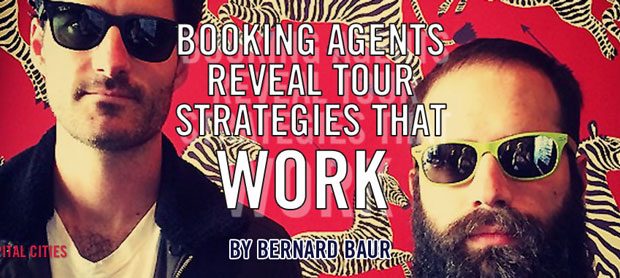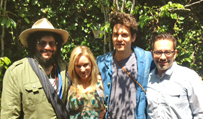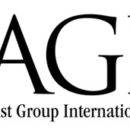AGENCY FOR THE PERFORMING ARTS (APA)
Adam Brill, Agent
[email protected]
Web: apa-agency.com
Case Study Act: Capital Cities, (capitalcitiesmusic.com)
Founded in 1962 by former MCA executives, Agency for the Performing Arts is one of the largest diversified talent agencies in the Untied States, with headquarters in Beverly Hills, Nashville and New York. Adam Brill’s work with up-and-coming artists includes booking Imagine Dragons during the band’s early years, plotting strategic touring for AWOLNATION in support of that act’s now double-platinum success, and taking Capital Cities to the next level as they played for thousands at festivals and scored a supporting slot on Katy Perry’s summer tour.
Would you be attracted to an act that hasn’t toured extensively?
It depends on what I see. If I’m passionate about them and see growth potential, I might take them on and develop their market. Of course, it’s easier if they already have something going on, like a record deal, publishing deal, manager and so on. In fact, most acts we work with at this agency have those things.
What’s the key to booking tours?
You need to think one step ahead all the time. So if you’re booking a show now, right before you book that show you need to know what your next step is going to be in that market down the road. It’s almost like you’re planning forward. It’s more about the long-term picture than short-term gains.
How should a new act’s initial tours be planned?
I like to focus on the act’s home market first. Then, I would expand regionally. There’s no reason for an emerging act, that’s not yet established, to tour the whole country, or even several states. They probably couldn’t afford it anyway.
How do most acts finance their first tours?
They save money from their jobs or borrow from friends and relatives. Sponsorships come into play a little further down the line, after the act has gained some exposure and built a buzz. Sometimes a label will help, but they’re very specific regarding which tours they’ll support. It has to be big enough and in a market they value.
Have performance fees changed much?
They sure have… Now, a lot of promoters, especially with newer acts, will offer a percentage deal rather than a guarantee. Nowadays, you have to prove yourself before they’re willing to pay you. And that could be disastrous if you don’t promote your shows well enough.
Do you have a case study act?
It’s Capital Cities, an electro-pop-rock-dance act. When I saw them they were just doing clubs, and were starting to get some radio play. I initially followed the airplay and analyzed their social media to determine where they should tour. At first I only booked a few shows because I didn’t want to exhaust the market too soon. Eventually we progressed to larger and larger venues, with capacities increasing from 200 to 500 to over 1,000. It took about a year and their single exploded.
Do you have to see a live show before working with an act?
I’m really big on seeing the act play live. It’s a pretty big indicator of where they are and where they can go. I need to see it and feel it before I take them on. It’s about having the ears and eyes to know that if they tour for a good amount of time––really work at it and hone their craft––they could be playing for 5,000 or more people after a year or so.
What would turn you off about an act?
An artist who isn’t a team player can be frustrating. If they’re not willing to do what it takes to make it as a touring act, I can’t help them. I won’t argue with them––that’s not very constructive. I just won’t work with them.











